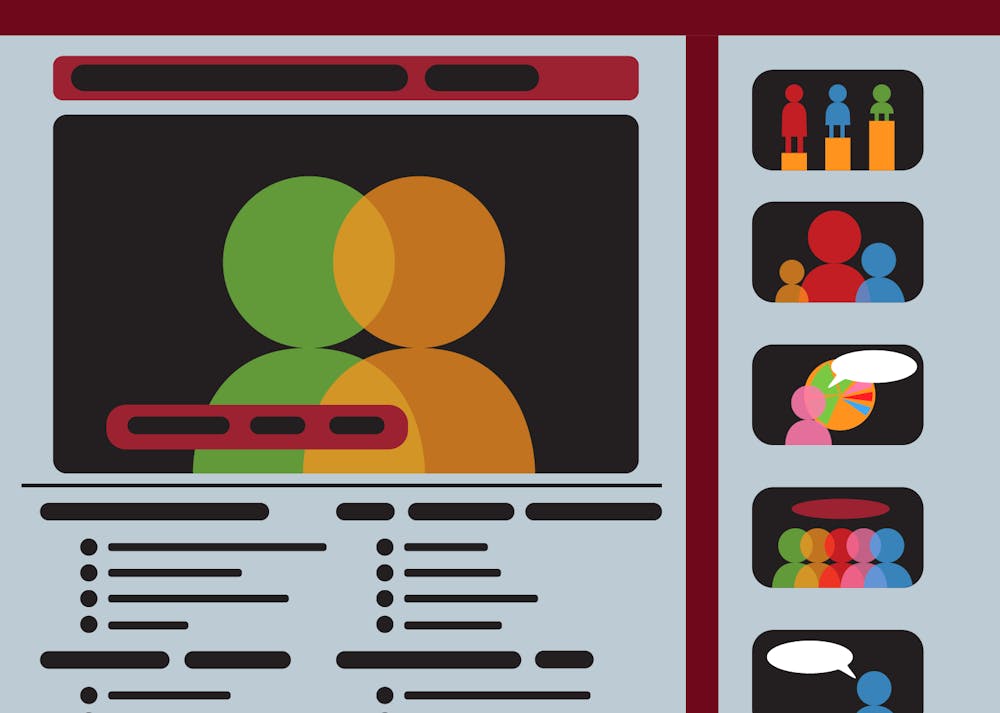ASU mandates inclusivity training for all of its faculty, but some staff members are skeptical of if these trainings are doing enough for the diverse groups on campus. While they attempt to increase awareness, ASU's inclusivity trainings seem to be lacking when it comes to tangible, material change for minority communities.
These trainings include online Canvas courses that discuss topics such as race, gender, relationships and indigenous communities.
ASU philosophy graduate student Scout Etterson talked about their perception of the inclusivity trainings, and their belief that they essentially only accomplish virtue signaling.
"If it's doing anything good, it's putting on the face that we should be an accepting community – it's good to show that face," Etterson said.
However, having that face of acceptance is simply not enough for there to be any change that goes below surface level. It is obvious that there are issues with how performative these trainings are, especially since ASU still sees its fair share of bigotry.
"It's maybe putting on a little bit too nice of a face," Etterson said. "It's signaling that there is something that's not there, which is a community that's 100 percent clear of racism and sexism, homophobia and transphobia."
In order to really address these issues, Etterson claims that the University should first require faculty to attend in-person trainings with people who are qualified to speak about diversity, and secondly, that money should be allocated to the right places.
"I would be surprised if (funding) was going to Indigenous communities and queer communities and other underrepresented people," they said.
ASU encourages staff to have pronouns and land acknowledgments in their email sign-offs. Land acknowledgments are formal statements that recognize Indigenous territories upon which the University was built.
While land acknowledgments and widespread denotations of pronouns create awareness, they are not instilling tangible change in Indigenous populations or queer communities.
ASU does offer some resources and programs to Indigenous students through its American Indian Student Support Services, but the site connects students to external resources in terms of food banks and housing centers.
Programs such as SPIRIT, Mentor U, and the Native American Achievement Program connect students to professional and academic resources and guidance, but it is unclear how they assist Native American students and non-Native American students with building lasting communities together.
Assistant director of the cultural connections for ASU's Educational Outreach and Student Services and advisor for the Black African Coalition Ebony Anderson spoke candidly about her role in these positions, which includes overseeing diversity trainings.
"I think that (the coursework) is a good conversation starter, but it's not enough that someone can interpersonally take something away from it," Anderson said.
She believes that the inclusivity training at ASU is very high-level, but states that it is more concerned with raising awareness rather than facilitating physical change. Anderson recalled a time when an Indigenous chief visited ASU and tapped a land acknowledgment sign while calling it unimpressive.
"Acknowledgment is not for them. It’s for us," Anderson said. "If you're an Indigenous person, you see that sign, and you don’t have a sigh of relief of 'Oh, at least they recognize that this land used to belong to us.' There’s no solace in that."
While the inclusivity training at ASU may promote important first steps such as increasing awareness surrounding diverse communities, it falls short of promoting material change that faculty and students can implement in their lives. Focusing on community-building efforts, listening to underrepresented students' voices, and allocating funding to these communities can help bridge the gap between performative awareness and intentional advocacy.
Edited by Sadie Buggle, David Rodish, Sophia Balasubramanian and Grace Copperthite.
Reach the columnist at haleighbell1026@gmail.com and follow @wwoodengirl on Twitter.
Editor's note: The opinions presented in this column are the author's and do not imply any endorsement from The State Press or its editors.
Want to join the conversation? Send an email to opiniondesk.statepress@gmail.com. Keep letters under 500 words and be sure to include your university affiliation. Anonymity will not be granted.
Like The State Press on Facebook and follow @statepress on Twitter.




